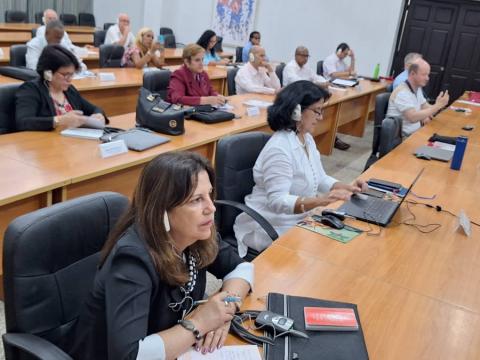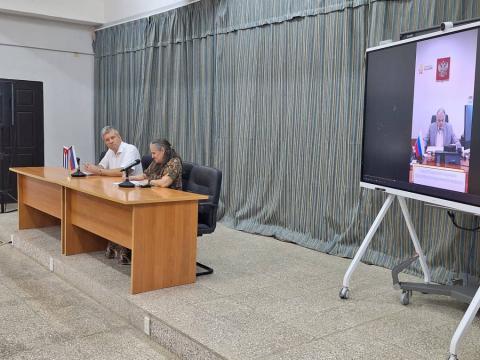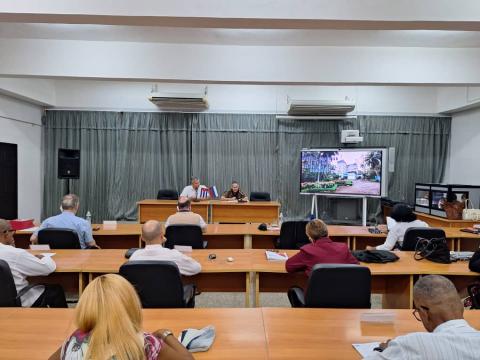Course "Global Trends and Priorities for the Development of Public Administration in the 21st Century"



At the Higher School of State and Government Cadres (ESCEG), the Presidential Academy of National Economy and Public Administration of the Russian Federation (RANEPA) taught the course "Global Trends and Priorities for the Development of Public Administration in the 21st Century" from September 16th to 20th to executives from 14 different institutions. The course was inaugurated by the Rector of ESCEG, Dr. C. Mercedes Delgado Fernández, and Alexander Korendyasev, First Secretary of the Embassy of the Russian Federation in Cuba. On September 17, 2019, ESCEG signed a Memorandum of Cooperation with RANEPA. The aim of this Memorandum is to promote cooperation in the fields of public and business administration, train senior executives, and strengthen the friendship between the parties. Through this Memorandum, more than 750 executives and professors have received training in different areas of public and business administration. The course was taught by Tigran Antonovich Zanko, candidate of legal sciences, associate professor, and deputy director of the Institute of Public Administration and Management (IPACS) at RANEPA, and Alexander Petrovich Kochegura, professor at the Department of Public and Municipal Administration, Faculty of Public and Municipal Administration, Institute of Public Administration and Management (IPACS) at RANEPA. RANEPA organized the course by Kristina Zhgelskaya, an expert from the Department of International Development of the Russian Presidential Academy (RANEPA). The course was coordinated by the Vice-Rector for International Relations, Dr. C. Ana Gloria Navarro Pentón, for ESCEG.
The main topics covered in the course include:
• Priorities for the development and reform of public administration systems in the 21st century.
• Modern models and concepts of public administration systems.
• Fundamentals of public administration and management in the Russian Federation.
• Legal security in public and municipal administration and management.
• Evolution and peculiarities of the organization of the executive branch.
• Characteristics and lessons learned from administrative and management reforms (since the 1980s).
• Comparative analysis of public administration and management reforms.
• Change management in public administration bodies.
• Civil service system.
• Ensuring legality and combating corruption in public administration.
• Implementation of modern technologies in public administration and management: theory and practice.
•Strategic Planning and Public Administration Institutes.
The course included systematic exchanges with professors, teamwork, a written exam, and the presentation of graduation certificates.
